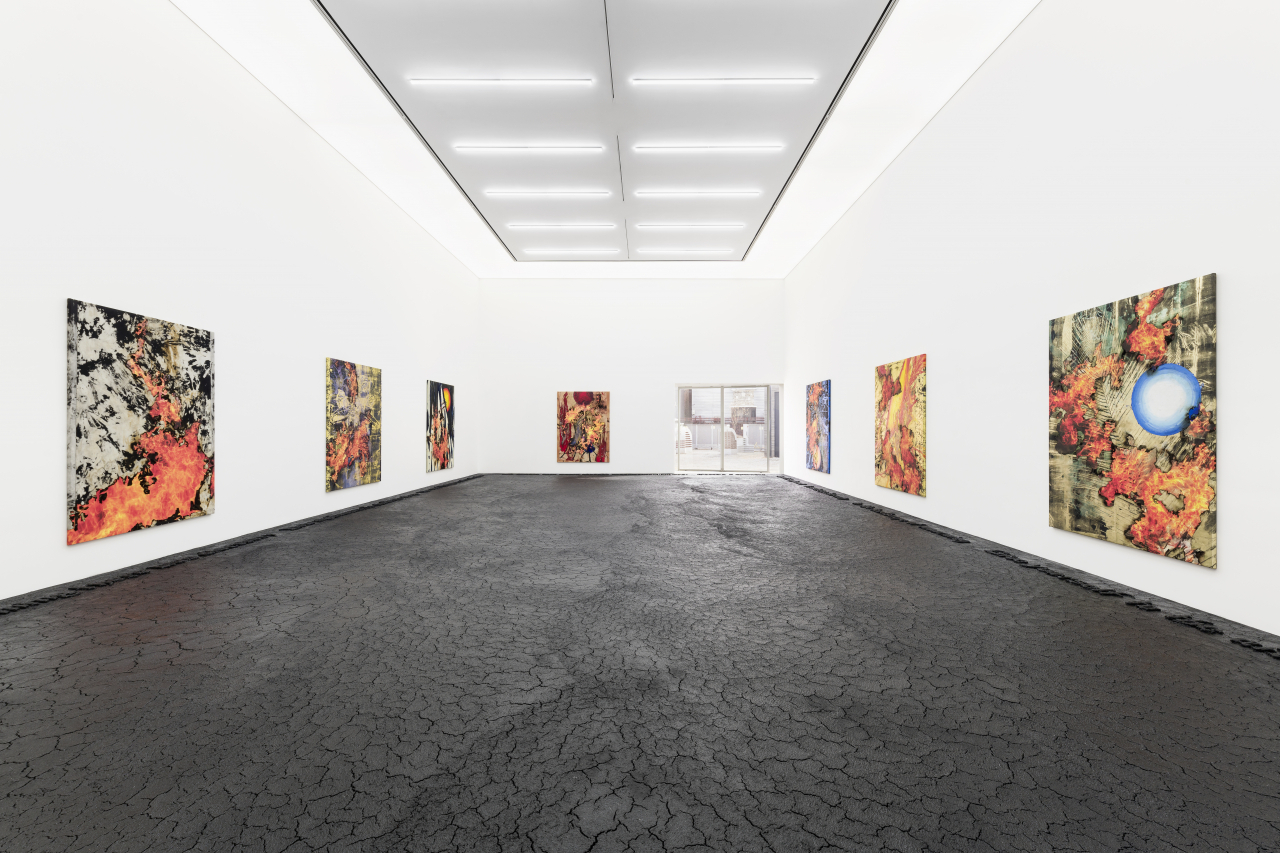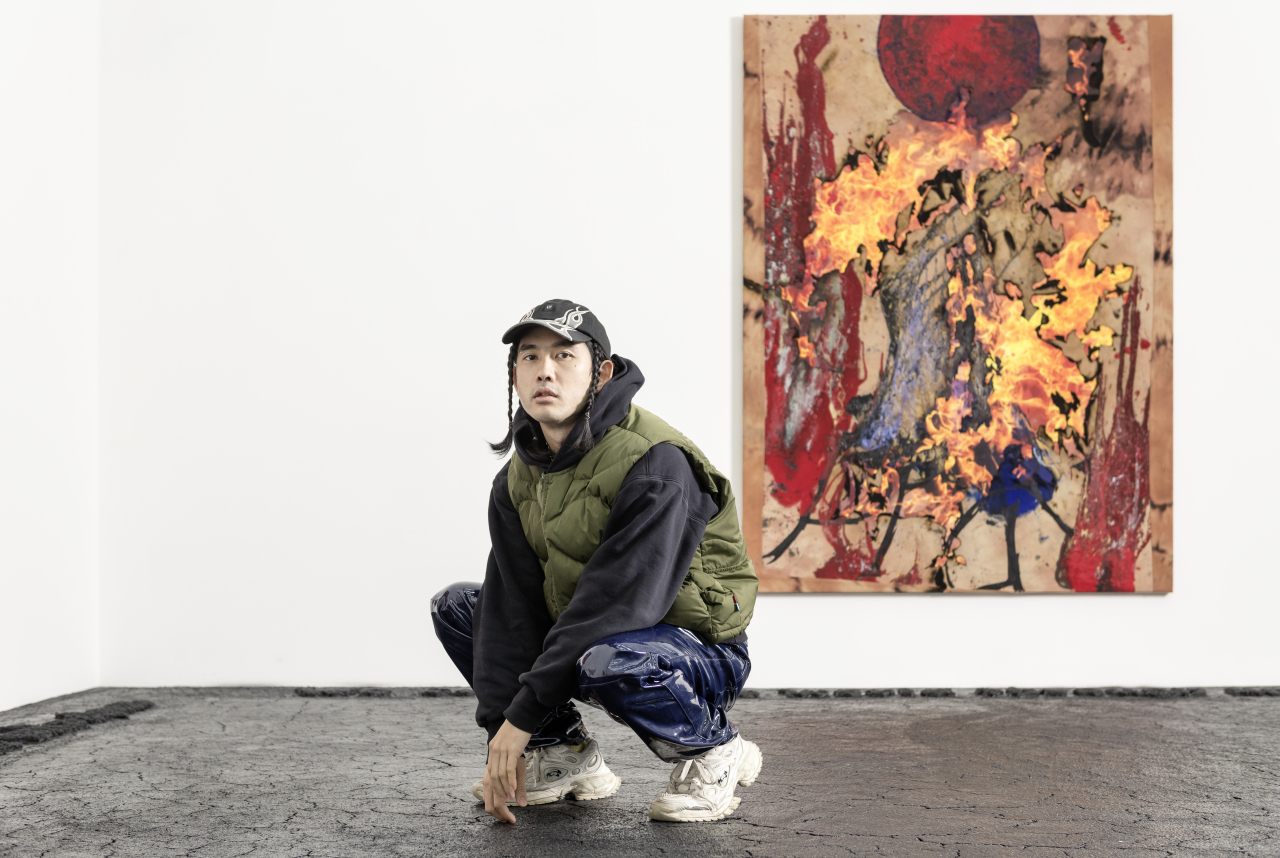 |
Installation view of "Image, Symbol, Prayer" at Kukje Gallery (Kukje Gallery) |
Fire and ash have been at the center of Thai artist Korakrit Arunanondchai's art practice for the past 10 years. The artist’s solo exhibition at Kukje Gallery in Seoul is a place where visitors can contemplate on death and life.
The gallery’s K3 space appears to be a completely different space from the rest of the gallery – the floor is made from compressed ash mixed with earth and paint, making visitors feel as if they were standing on volcanic rock. Prayer text is sculpted into the floor, which the artist said is like subtitles to the show.
 |
Korakrit Arunanondchai (Kukje Gallery) |
“(A prayer) is almost like the promise that may never be fully fulfilled, but then until it's fulfilled, it's also not broken,” Arunanondchai said at the press preview on Dec. 15. “So, it's something that's in this state where it's neither-nor, and that's the kind of feeling I have towards spirituality or even art itself.”
The prayer includes: “We create this world through unanswered prayers/ There is a splendor beyond the upheaval/ A nostalgia for unity/ In the landscape of mourning/ Give yourself to the air, to what you cannot hold.”
While the artist has displayed video work at the show since 2014, his inaugural show at the gallery focuses on paintings from his two series -- “History Paintings” and “Void (Sky Painting).”
“History Paintings” use bleached denim as the primary material. On the denim, Arunanondchai builds layers of paint and photographs, which are remnants from a fire. He sets paintings on fire and photographs them as they burn away. The remaining fragments of the paintings and their resultant ashes are reassembled with photographic documentation.
 |
"Who Will Testify to the Time when the World Was Ablaze?" by Korakrit Arunanondchai (Courtesy of the artist, Kukje Gallery) |
“I started to work with bleached denim, partly due to the idea of its relationship to Western globalism, specifically America. I heard the saying that the first minute you paint on canvas you enter a Western history, and I am always aware that being a contemporary artist, everywhere in the world, we, as a non-Westerner, engage in something that is other than us, and then it becomes us,” he said.
"(Denim) also feels like the texture of the Earth or something that you look from far away, almost as you are in the plane looking on the texture of the Earth itself," he added.
The artist's first solo exhibition in Seoul, “Songs for Dying and Songs for Living,” took place at Art Sonje Center in October. His video installation “Songs” was shown at the 13th Gwangju Biennale in May.
"Image, Symbol, Prayer" runs through Jan. 29 at Kukje Gallery.
By Park Yuna (yunapark@heraldcorp.com)






![[Today’s K-pop] Blackpink’s Jennie, Lisa invited to Coachella as solo acts](http://res.heraldm.com/phpwas/restmb_idxmake.php?idx=644&simg=/content/image/2024/11/21/20241121050099_0.jpg)
